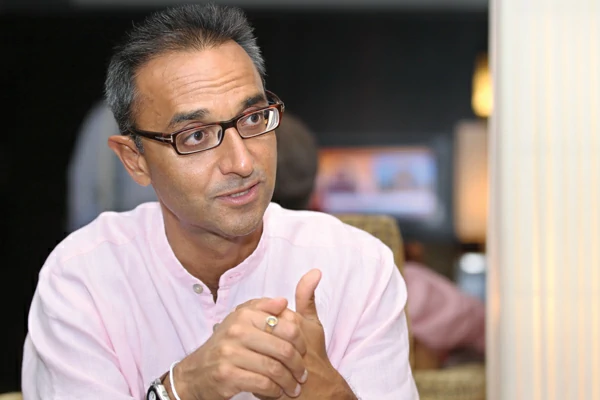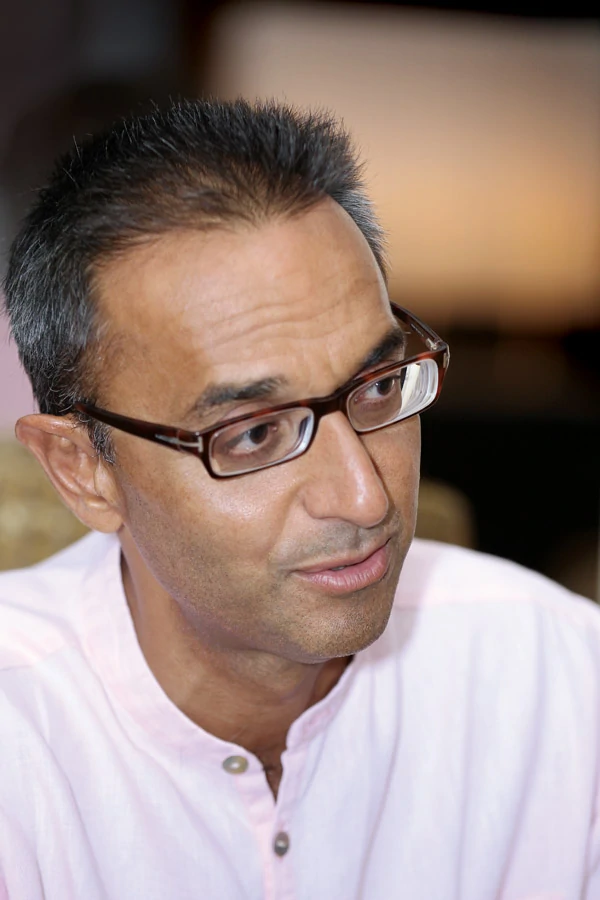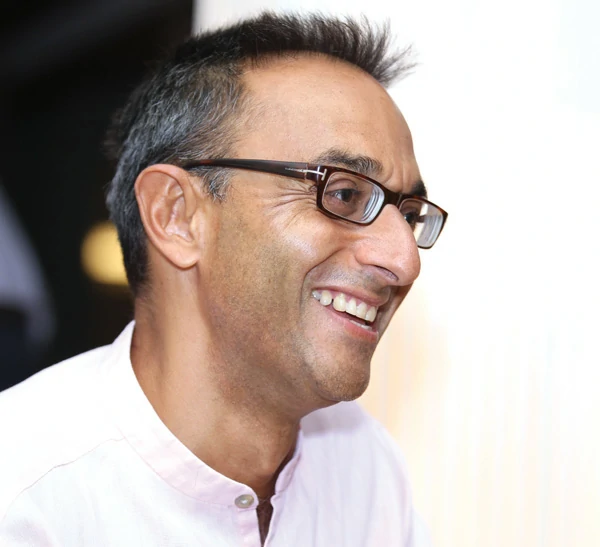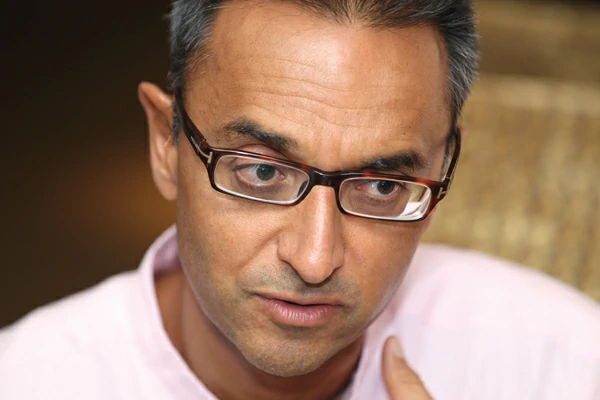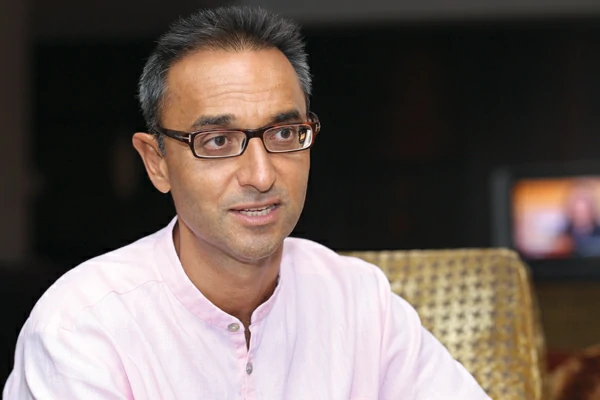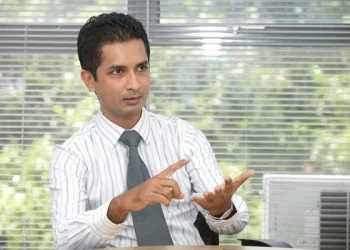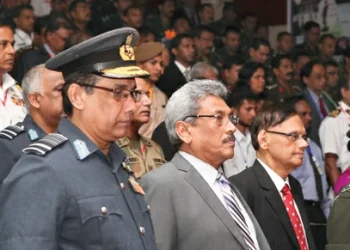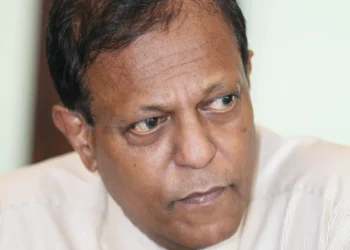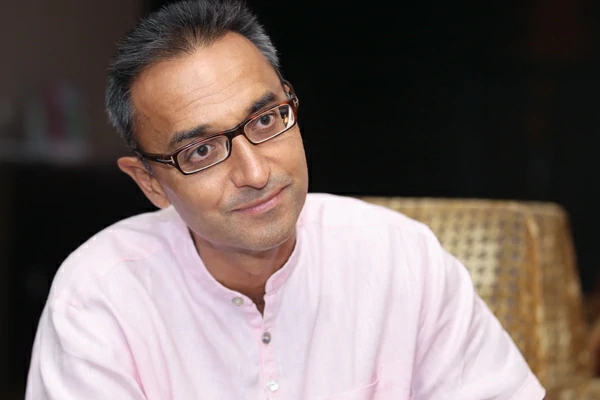
Innovative and unique Six Senses has set the standard for intelligent luxury tourism with its properties primarily in Asia. Focusing on sustainability where ownership is created amongst employees as well as the communities of the host country, guests are provided with the best experience where Six Senses’ core purpose of creating innovative and enlightening SLOW LIFE comes to the fore. Sonu Shivdasani Chairman and CEO of Six Senses spoke about the many dimensions of creating an experience, where protecting the environment should be an ingrained factor in any strategy, while detailing the need for Sri Lanka to focus on quality as opposed to quantity when developing the tourism sector as Six Senses makes its presence in Sri Lanka.
By Udeshi Amarasinghe
Photography by Menaka Aravinda
Since its inception in 1995, how would you describe the growth of the Six Senses Group?
We have evolved and almost doubled every three years. If you grow without thinking of why you are growing then it can always be a challenge in the future. We have been very fortunate because our values and philosophy reflect what people really want. Six Senses consists of three brands; Soneva Resorts, Six Senses Resorts and Six Senses Spas. These are our three principle brands. We have a few properties under Evason but our focus moving forward will be on Soneva and Six Senses Resorts. The core purpose of Six Senses is to create innovative and enlightening SLOW LIFE, that represents Sustainable, Local, Organic, Wholesome, Learning, Inspiring, Fun, Experiences. Our core purpose resonated well amongst people. Soneva Fushi was the first resort we opened.
The philosophy and mission of Soneva was intelligent luxury, thereby questioning what was truly luxurious to the wealthy of today. The wealthy of today come from a different context to the privileged of the past. Established in the 19th Century and early 20th Century when a lot of the “language” of luxury was established the wealthy were landed gentry. They lived on big estates, they had space, fresh air and fresh food. Today, however, people are living in boxes and they move from one box to another; from the house to the car to the office. Fresh air is a premium, fresh food is a challenge, a fresh salad from the organice garden suddenly becomes rare. Therefore, this philosophy proved to be true, it is special and different.
The Core Purpose Of Six Senses Is To Create Innovative And Enlightening SLOW LIFE, That Represents Sustainable, Local, Organic, Wholesome, Learning, Inspiring, Fun, Experiences.
The idea that I can arrive at Soneva Fushi by sea plane, receive a cold towel and coconut water on the way to the jetty at which point my shoes are put in a shoe bag and kept aside. Essentially for the entire stay, guests will be walking barefoot. If you travel 300 hours per year on business and have packed suits, ties and high heeled shoes to impress others and then if you come on a holiday to our resorts, we are going to confiscate your shoes. Therefore, it is like an equalizer, hence the real focus of the stay is on yourself and gives you space to pack your DVDs or books. This is a perfect example of ‘intelligent luxury’ and it is what allowed us to be successful, to grow, expand and develop and for other companies to ask us to come and manage their properties. Therefore, we have been growing quite fast but we are concientious about the pace of growth. We have these sessions that are entitled; “growth for growth sake, the philosophy of the cancer cells”, and that reminds us that if we grow for the sake of growing without having a rationale it will undermine us just as the cancer will consume us.
We thought about it and asked ourselves what are the economies of scale? What are the advantages of having more than one property? What are the dangers and challenges? We realised very quickly that with our particular super luxury concept, we have strong values. If a guest is spending 15,000-30,000 dollars per holiday, what they really want is a personalised service where they can speak to the general manager or the reservations manager about the rooms. Therefore, the economies of scale come to us when employees share their ideas, when they try to get at the top of the industry and share and exchange ideas and strategies that improve the overall standards. For example, the Spanish chef will speak about progressive molecular cuisine or a thermo mix; the Australian chef may speak about certain ingredients so they are benefitting from each others knowledge and creativity; the HR Director will be sharing strategies. That’s the type of economies of scale that we wanted, where employees are promoted from one property to another.
The challenges arising from this are the loss of values, loss of culture and standards; hence, we realised that as we grow we should divide ourselves into ten clusters and have five to ten properties in each of these clusters rather than having 50 properties around the world. Vietnam is a cluster where we have opened our third property. The fourth is under construction and the fifth is in its development phase. South Asia is another one; we have three in the Maldives, two properties with Aitken Spence in Sri Lanka, and six properties in Thailand. We have identified ten clusters around the world. This explains how we have grown and evolved. The Spas are another element because we are about SLOW LIFE, learning and inspiring experiences. Hence we realised that a spa is a very important element in the experience of learning and inspiring, and of course spa treatments are fun as well. We did not want to sub contract that element, we wanted to do it ourselves. At that time there were not many spa operators either, we were the first to open a spa in the Maldives. During that time having a spa was a differentiator, but today it is a qualifier for a luxury resort to have a spa; if you do not have a spa then it is commercial suicide. We have won many awards. Recently Six Senses Spas was awarded the best spa in an overseas hotel by the Conde Nast Traveller UK’s reader’s awards. We were number one, three, five, eight and 13; we had five in the top 15.
Having properties around the world, how would you say the global tourism industry is doing right now considering the economic downturn and global recession?
The Maldives And Sri Lanka Offer Very Different And Complimentary Experiences… I Believe That Sri Lanka’s Opportunity Is That It Should Never Compete With The Maldives On Beaches Because It Will Lose If It Does. What Sri Lanka Needs To Do Is To Develop Its Own Character.
There has certainly been a recession in the OECD; the USA and Europe have experienced that crisis. However, Asia has been booming and China outbound has grown significantly. For example in the Maldives, China was an insignificant market; there were hardly any Chinese visiting the Maldives four or five years ago. Today, China accounts for 19 percent of arrivals, it’s the number one market for the Maldives. India and South East Asia have been evolving. Hence, we found that there is much more regional business and as such have been refocusing our attention on Asia – that’s one. Secondly, globally, tourism still grows at three to five percent; last year it accounted for 900 million arrivals and it is expected to double by 2020. It is still an evolving industry. Certain areas have been affected, for example, destinations dependent on the American market alone have been impacted negatively. We are fortunate that the American market is not such a significant market for us and since we are in Asia, the regional demand has been positive. We also found that the super high segments are travelling more than ever. For example, our property in Maldives – Soneva Fushi. Our financial year ends in June; end June 2011 was again ten percent above end June 2008. Soveva Fushi our flagship, is doing very well. Soneva Gili is doing quite well too, but it’s about ten percent down from 2008. But we found that those two properties under the Soneva brand where our RevPAR is actually highest in Asia, (average rate multiplied by occupancy), our average rates are over a USD 1000, that is after commissions and discounts, and the occupancy is about 70 percent. We are doing well at that level. We have clients coming in their private jets, and there’s always someone who’s super rich. For example, high oil prices might slow down the economy, but the people involved in oil and gas do quite well so they can afford to stay with us or if the markets tumble, there are short sellers who’ve done well. Therefore, if you have created an exceptional product, there are still people who can afford it.
With increased numbers of tourists coming to Sri Lanka now, has it affected the Maldives significantly?
No, not at all. The Maldives and Sri Lanka offer very different and complimentary experiences. The Maldives is all about white sands, the gin coloured water with incredible marine life and those ‘fried egg’ Islands. They are unique and if you want a beach resort you can’t beat that. Sri Lanka is all about the combination of experiences, the culture, the hills, the beaches – if you take the beaches here, it’s about being around Galle, visiting the old fortified town, some of the villages, the nice sound of the waves; it’s a different type of geography. It’s about the hills – Kandy and Nuwara Eliya. I believe that Sri Lanka’s opportunity is that it should never compete with the Maldives on beaches because it will lose if it does. What Sri Lanka needs to do is to develop its own character. It should be known as a place of great charm; small boutique hotels, small local restaurants and the beautiful Dutch fortified town of Galle. If you think about it, there is nothing like that in Asia. In Europe, you have San Tropez, Portofino, Capri, the Amalfi coast and the Greek Isles, you have many places with these old ports, old fishing villages, fortified towns. In Asia, apart from Penang, which is quite developed today, there aren’t many places where you have that feel of old architecture, people and civilisations that have been living there for more than hundred years. Hence, I believe Galle has potential and that’s the opportunity for Sri Lanka.
You Don’t Want To Undermine The Prosperity Of The Community Living Where These Resorts Are Built In… The Purpose Is That Tourism Should Support The Community, Whether It’s The Local Environment, The Eco System Or The People Themselves.
One should never set targets in terms of the number of tourist arrivals. If one creates a good experience and one has a philosophy as to how the destination should be and if that philosophy is in line with the wants of global tourists, then the tourists will come and that will be a much more sustainable business. Setting targets like two million, three million, four million tourists a year sometimes promotes volume at the expense of quality and long term prosperity. In fact Bhutan has this lovely measure called Gross National Happiness index; that’s how they measure the performance of the leaders, the King and his parliament. They have a number of measures to evaluate that. In tourism too, if one just looks at GDP in terms of volume you may find that tourism can undermine prosperity as we have seen in Spain. If you look at Benidorm for example, it is a great case in point where great monstrosities of 500 to 1000 rooms were built on the beach. Those properties grew because of low priced volume markets. They attracted many tourists but those tourists stole the resources from the local community and population. The local community thereafter had to retreat to the hills. The beach land was too expensive, the fishing villages ended up being full of very expensive bars and night clubs. Therefore, the locals could not afford to go there. Fish prices increased because it became a scarcity. Hence, if you were a local there, you didn’t really gain from that tourism; it was negative. Today, Benidorm is a ghost town, even in the season it’s half full, which is quite sad. The only opportunity to fill it is to have large volume conferences and events which they try and do, Benidorm should be knocked down. This is a challenge as well in Sri Lanka with a country that has come out of war and is thinking about growth. Tourism is however, an important sector. It’s important that one really understands one’s strategy and is careful about who one wants to attract because you don’t want to undermine the prosperity of the community living where these resorts are built in. That’s not the purpose. The purpose is that tourism should support the community, whether it’s the local environment, the eco system or the people themselves.
Why did Six Senses decide to come to Sri Lanka?
Sri Lanka is a beautiful country. We are in the Maldives, our home is there and coming to Sri Lanka is actually an extension. It’s a lovely combination, Maldives and Sri Lanka because they are complimentary. With our two properties in Sri Lanka you will see people spending a week at the Six Senses in the Maldives and then coming to Sri Lanka for a week, spending two or three nights at the Six Senses before Galle or Six Senses beyond Galle and then travelling to the mountains.When we opened in the Maldives 15 years ago, we were relatively unknown.
We Introduced Luxury Tourism, People Loved What We Did And It Created A New Niche In Luxury Tourism… In Sri Lanka Too, I Believe We Will Have Quite A
Few ‘Firsts’. We Are The First To Offer Branded Residencies Attached To A Resort.
Two properties are planned with the ground breaking of Six Senses before Galle being held recently. What can you tell us about these properties and why these locations?
Six Senses is renowned for coming into a destination and adding a new twist to the offering. We would never go somewhere and do something similar. There has to be a unique twist and something that the country does not offer. When we came to the Maldives, the Maldives was relatively unknown. When we opened in the Maldives 15 years ago, we were relatively unknown. We introduced luxury tourism, people loved what we did and it created a new niche in luxury tourism. We had many ‘firsts’; we were the first to introduce pools, spas, wine cellars, aesthetic design, organic gardens, observatories and open cinemas. What we do is always a new twist to what the country doesn’t have.
In Sri Lanka too, I believe we will have quite a few ‘firsts’. We are the first to offer branded residencies attached to a resort. These are residencies that the people can buy on the west coast, but these are not attached to a resort where it’s managed for you. But what we are offering are residences managed by the hotel. You arrive after your flight, the car picks you up at the gate, you’re in a mercedes, they bring you straight to the hotel, you arrive at the villa and the mini bar is stocked, you don’t feel like cooking that evening, you can call room service and they deliver your meal within half an hour. You want to go and have a spa treatment, the spa is right next door, the butler’s there, the villa’s impeccable. Therefore, to have a residence managed by the hotel has much value rather than paying money. When you leave we write you a cheque because you have pooled your villa back. With many of our properties, the residence owners, pool the villa back for clients to use and we each share a 50 percent of the income.
We will have 14 residencies at before Galle, and we will be offering a guaranteed six percent net yield. The starting price is USD 2.25 million for a two to three bedroom unit – that is two bedrooms plus a study, which can be turned into a bedroom – sitting room, living room and beautiful pool and it’s only 30 metres from the beach. From your living room you can walk straight into the sea, which is rare; there are very few places in the world where you can do that. This makes it very unique. I believe the residencies will do well. We already have one on offer even though we have just carried out the groundbreaking. Then we will have a Six Senses spa, that goes without saying. It will be the first pool villa resort; every villa will have its own private pool, it will have a fantastic organic garden with an interesting development, there will also be a nice wine cellar where the sommelier will have tastings. We are hoping to organise events, which are very important to Sri Lanka, to invite famous winemakers, chefs to cook and show their wines, which will be good because it will introduce these people to Sri Lanka.
In terms of other ‘firsts’, the resort will have a fantastic chocolate room, an open air cinema, an observatory, possibly the only observatory in a hotel in South Asia with a huge telescope where you can see the stars. This is part of our intelligent luxury philosophy because guests living in cities will not be able to see the stars because of the smog and pollution. We will be having a professional astronomer at the observatory explaining the stars to them. Hence, it would be a fantastic experience. This is the land of Arthur C Clarke; it’s only appropriate that we would have that. We’re also going to have a luxury tented camp in Madhu Ganga and the idea is for it to be zero carbon. It will be the first zero carbon resort in Sri Lanka. There will be quite a few ‘firsts’ and this too will hopefully do very well.
The Core Values Of Six Senses, The Vision Of Each Gives A Sense Of Direction And Structure To Our Creativity. We Have A Great Team Thinking Of Innovative Ideas And What We Can Do To Break The Next Barrier.
Do you think Sri Lanka is ready for the niche up market?
Yes. If the country does not try then it will never be ready. You have to try and you have to bring that type of people to the country; it is only then that Sri Lanka will develop a reputation. I have spoken to many of our guests in the Maldives about the idea of going to Sri Lanka, exploring the country and they are quite interested.
If you can speak a little bit about the partnership with Aitken Spence, the mechanism in relation to the properties?
It is a 50/50 partnership, which has been fantastic for us because it’s worked very well. They helped us immensely with all the local issues, the permits and identifying sites. We have a beautiful site in Ahungalla, which will be called the Six Senses before Galle. The site is a stunner with a beautiful beach. It is unlikely that we will see large hotel development nearby as the public road comes close to the beach after our property. Therefore, the location is very private. The site at Madhu Ganga is wonderful. They are great partners and I believe we will do very well. They are very reasonable and professional, we could not have asked for more.
Would Six Senses consider venturing into more properties in Sri Lanka? Six Senses is also to list in the Colombo Stock Exchange, what is the reasons behind this?
Yes, absolutely, we would like to do a few more. We would first like to get these two off the ground because it’s our first experience in the country. We would first like to make these a success. Once they are a success, we will look at venturing into more. I’m quite keen on the hills, I would like to introduce a Six Senses sanctuary. The idea of a sanctuary is not just a resort and a spa, it’s a destination spa.
Regarding the listing in the Colombo Stock Exchange, we are hoping to list the property company. We are going to club our South Asian assets. The reason behind it is that we want to have more visibility; we will continue to have a significant controlling stake but we felt that it would make sense to make Sri Lanka a regional hub for our developments in the South Asian region.
We Like To Have Not Just One Host Or One Owner, But Over 300 In A Property. As Such All Our Philosophies Are Based On Being A Favoured Employer And Creating A Sense Of Ownership Among Our Employees.
You are always ahead in the industry with new concepts and innovations, what keeps you going and what is your inspiration?
My wife. She is a great inspiration. She is very passionate about sustainability, for instance, if she’s at a restaurant and sees that shark fin is on the menu, she will walk out regardless of how important the dinner is and the next day she will write to the owner of the restaurant. She is quite strong minded and determined and as such a great inspiration. Then, the team we created is also a great inspiration. The core values of Six Senses, the vision of each gives a sense of direction and structure to our creativity. We have a great team thinking of innovative ideas and what we can do to break the next barrier. “Structured innovation” is an ingrained management practice at Six Senses.
How and why did you decide to come into the hospitality industry?
It was by accident, Eva and I were holidaying in the Maldives. We were at Oxford at the time and we loved travelling. Those days resorts were one star hotels, all inclusive. Everything was plastic; the furniture, rooms and the tiles. The food essentially came out of tins, even the tuna fish, fruits and vegetables.
One day I said to Eva I love this destination, but it’s a really bad experience and I will not come back unless they prove otherwise. It was then that she suggested that we should lease an island and build a house. I only had a few days left from the holiday so I went to see the government officers. This was in 1988, and all the government offices in the Maldives were housed in one building. I first went to the Ministry of Finance and expressed my interest in leasing an island. I was told that islands are not leased out to foreigners unless they were going to engage in tourism and I was sent to the Ministry of Tourism.
We Have Said Very Clearly That We Are Not Targeting The Corporate Market Because We Are Not Geared For That And It Is Not Our Philosophy.
A Director at the Ministry said they were auctioning some islands in three months time and asked for us to submit our bid. We offered a very high rental but we were unsuccessful, as the Maldivian Government felt our luxury concept would not be successful. About three years later we were on holiday again and we learnt that an island was available. It had opened in 1975 and closed in 1979 because they had not sorted out their transfers and it took some guests four days from Male by boat. However, due to its failure there was a perception that the island was jinxed. We were positive. The problem was that the transfers were not good. Therefore, we brought in air transfers and now it is only a 30 minute ride. We built phase one but we ran out of money before we could build our home. We lived in a guest room whenever we were there so we were like nomads on the move all the time. Fortunately, the resort was a great success. By 1997 we realised that we should build more rooms. Therefore, we built more rooms. another restaurant and a spa. Then there was an accident where the power room was destroyed in a fire. We had no power or electricity. Paul McCartney was staying with his family at that time and we had to evacuate them. We managed to reopen in a month by air freighting generators, desalination units and other such equipment. However, the insurance company went bankrupt on us and we received only USD 500,000 for a five million dollar claim. Again our house was canned. Then we commenced phase three, two years later but we started by building our house before anything else!
Your management style is unique, what can you tell us about this?
We have five goals. One is to be decarbonated by 2020 which is to actually absorb CO2 in our operations, obviously excluding air transfers and the shipment of goods, which we cannot control. At least in our operation we want to be decarbonising. Our aim is to make the Six Senses brand synonymous with SLOW LIFE, thats our core purpose and for it to be top twenty luxury goods brand by 2025 and then we want to be a favourite employer. Therefore, HR and being a favourite employer is an importantstrategy for us, we believe very much in creating a sense of ownership. People look for something different from a resort than from a city hotel. They are looking more for an experience.
In a city hotel people serve but guests hardly acknowledge them because one is either deep in conversation or rushing for a meeting or ordering room service whilst brushing one’s teeth, so one does not really interact with the employees. The focus of a city hotel is execution, thus a military style and a hierarchical structure. Execution is the emphasis, where you have to check the guest in within a couple of minutes. You are really timing the room service order and you want the waiter to be able to acknowledge the guest when they look up and food has to be delivered quickly since they may have just a one hour slot and time is of the essence.
However, when people are on holiday and at the hotel for a week, they are not busy and they have a lot of time on their hands. The husband might relax with a drink while the wife has a spa treatment and he will interact with the barman during that time. Such guests want to understand the culture of the country. Therefore, we refer to our employees as hosts. We like to have not just one host or one owner, but over 300 in a property. As such all our philosophies are based on being a favoured employer and creating a sense of ownership among our employees. How do you create a sense of ownership? Firstly, you create a vision together like an owner; the owner has a concept, he has an idea on how he is going to build his hotel and he makes strategies to ensure the success of the hotel. To make an employee feel a sense of ownership he needs to share and feel part of the strategy. Therefore, we need to brainstorm with them and allow them to come up with ideas and contribute to the overall strategies. Then they too feel like owners. Usually the owner has all the information and he does not share this information with his employees. But we share this information, we announce it on notice boards so that all the employees are kept informed.
I Believe Very Much That A Company Should Be Balanced, You Can’t Just Focus On Profits, You Need To Think About The People And The Planet As Well, You Need To Balance The Three Ps, Because If You Don’t The Company Won’t Be Sustainable, Economic Development Won’t Be Sustainable And It Won’t Work.
The next aspect is of course, rewarding the employees based upon performance. If we do well financially then we need to share that. We have many incentive schemes based on their individual performance. This really helps in creating a sense of ownership and encourages participation. The other aspect is that we try and attach employees to guests rather than to tables or functions, which is a very personalised private service. The waiter is attached to the guests rather than the table. In a city hotel environment you attach the waiters to the tables. There are many walk-ins, many guests who do not stay overnight or for long durations. In a resort guests stay for a week or more, there are no walk-ins. Therefore, it is important for the employee to have more interaction with guests. We have guests who come quite often with their children; for example if the waiter who has served them on every single occasion leaves us after about seven years, when the children find this out on their next visit they start crying. Sometimes the “host” will take the families to see their village to meet their parents. Therefore, it is a great experience for the guests. That is why we always try to hire locals. You will not find at Six Senses before Galle, a Balinese serving the guests. We will have as many Sri Lankan employees as possible. All the frontline “hosts”, villa attendants, waiters, fridays (butlers) will be Sri Lankans, because you cannot be a “host” if you are a guest worker. If you are not a local you will not be able to give a genuine welcome. That is our philosophy and how our management style differs.
We have said very clearly that we are not targeting the corporate market because we are not geared for that and it is not our philosophy.
Sir Richard Branson spoke at the SLOW LIFE Symposium recently. What was his response? and as a co-entrepreneur what lessons can you learn from him and vice versa?
The SLOW LIFE Symposium 2011 was a huge success. Along with Sir Richard Branson the other speakers at the event included Darryl Hannah, Edward Norton, President Mohamed Nasheed Chris Gorell Barnes, Daniel Foa, Eric Scotto, Fabien Cousteau, Hiu Ng, Jakob von Uexkull, Jean Ballandras, Jeremy Leggett, John Hardy, Jon Bowermaster, Jonathon Porritt, Jose Mariano Lopez-Urdiales, Mark Lynas, Michael Walker, Mike Mason, Peter Head, Tim Smit and others. The key to the success of the symposium is that you are on a remote island, with leaders from various spheres. In business we had Sir Richard Branson, leader of a country, President Nasheed, opinion leaders like Darryl Hannah and Edward Norton as well enviornmental scientists and environment campaigners. If one had all these people for a conference in the city, what usually happens is that they come in time for their speech and then they leave and do not get the opportunity to interact with the others. At the SLOW LIFE Symposium, we were on an island, people arrived on a Thursday, we started on the sand bank together to watch the sunset. An environment for informal interaction was created by organising lunches and dinners. The most important thing was that it created this space for like minded individuals to share ideas and discuss their strategies. Last year for example, Chris Gorell Barnes from the Blue Marine Foundation who produced the film the ‘End of the line’, (which is the equivalent of Al Gore’s ‘Inconvenient truth’ for marine life where the film talks about the fact that 90 percent of the fish in the sea in the past 50 years have been destroyed and other such issues), was present. He and President Nasheed worked on the Baa Atoll biosphere and talked about a larger marine reserve. Eric Scotto who installs hundreds of megawatts of renewable energy a year has a close relationship with the Reunion Islands, arranged for ten Maldivian delegates to visit the Island. These are some of the initiatives that were made.
This year there were many more interesting ideas, Tim Smith who created the Eden project in the UK met with a Chinese couple, who wanted to create an Eden project in China. Peter Head, who is the head of the Ecological Sequestration Trust has this fantastic modeling system he wants to create, he found someone that will finance it. Two of the delegates have agreed that they would support making one of the neighboring islands carbon neutral, because the President wants the country to be carbon neutral by 2020. There were many such initiatives that came out from the delegates that we now need to follow through, they found it to be a great success. They formed networks and will be meeting in the future. President Nasheed was open to the idea of having other Indian Ocean political leaders at next year’s SLOW LIFE symposium to see our sustainable projects and benefit from the speakers. Hopefully, this will make the Indian Ocean at the forefront of sustainable tourism, which will be a great thing.
What did I learn from Sir Richard Branson? He is a fantastic person who has achieved much. He is very humble and is as passionate about the environment as we are and doing the world a great service with his USD 25 million award for someone who comes up with a realistic way of harnessing green house gases and other such initiatives.
You have been in the forefront of green, sustainable and balanced tourism, where the environment is protected. What more can be done by the industry to safeguard the environment?
Firstly, by making it a key intention. The head of sustainability reports directly to me as the CEO, it’s not just some remote division that’s kept in a corner and as a CEO of a company you have to really drive the initiatives yourself. I believe very much that a company should be balanced, you can’t just focus on profits, you need to think about the people and the planet as well, you need to balance the three Ps, because if you don’t the company won’t be sustainable, economic development won’t be sustainable and it won’t work. Historically one of the first companies to be formed out of Europe in the 17th Century was the East Indian Company and that was formed for a specific purpose for the “common good” to benefit the country as a whole and not just a few shareholders. Prior to that companies were not allowed to exist. Therefore, this whole idea of companies’ sole aim to make profits is an unsustainable assumption. At Six Senses we banned imported mineral water, what we have done is we have saved on food miles and waste. The water is better and healthier because we actually bottle it ourselves on site. This is much healthier than mineral water shipped around the world which is shaken a lot, exposed to plastic, sitting on the dock with rodents running over it, which can be quite unhealthy. Therefore, we have made it healthier, there are no food miles and no waste.
Sustainability Is A Major Issue. Asia Is Growing And Is Emitting More CO2. Therefore, The Developing World Needs To Take Steps To Reduce Its Carbon Emission… The IPCC Has Set A Target Of Reducing CO2 Emission By 20 Percent By 2020 But That Is Too Little Too Late.
Six properties give half their revenues from water to charities, they have raised about half a million dollars in about two years. It costs about one dollar to give fresh water to someone for ten years, so that’s probably an example of making the guest happier and you saving on your costs while being more sustainable, and people are given more access to fresh water. We offset our carbon by charging our guests two percent of room revenu; that generates about USD 1.5 million a year from the 14 properties of Six Senses, which is shared between the SLOW LIFE Trust in the UK and the SLOW LIFE Trust Thailand. We are doing programmes such as financing stoves for natives in Dafur. The women have to walk for about five hours to collect firewood and are at the risk of being raped or killed. Our stoves reduced the risk and also offset carbon. We built a 1.5 MW windmill in Tamil Nadu, which costed us about USD 1.7 million. The energy produced by the windmill is provided at half price so the local community gets cheaper energy. Half of the income goes towards community projects and the other half goes into building more windmills. In Thailand we plan to plant 2.5 million trees within the next ten years; this year we planted 250,000 plants in a 200 acre site of deforested land. We will do the same for the next ten years, it will cost us about a million dollars a year.
In our operations we have 260 best practices on sustainability; organic gardens and serving as much local produce as possible, salads are from the garden, certain buildings are zero carbon; having ceramic pots that can be refilled for toiletries, non toxic skin care products, 50 percent of our wines are organic or bio-diatomic, turning the waste food and cardboard into compost. Taking the branches and putting them into big ovens in a vacuum creating a biochar which is used for charcoal for barbecues or adding it into the soil to make it very rich so that the salads taste better. We also grow our own mushrooms. In such a way, we take numerous actions to protect the environment and ensure sustainability.
What can we expect from Six Senses in the near future?
We are doubling every three years. We have Six Senses before Galle and beyond Galle, which we hope to open in 2013. In 2013 we will also have the Six Senses Saigone opening on the Saigone river. It’s about 20 minutes from the CBD and we have about one kilometre on the river, it is a beautiful site. We are looking at a possible site in Bangkok on the river and then we are also opening at Qingcheng mountain in China in 2013; and in 2014 we have Columbia and Morocco. Therefore, we have made plans for quite a few projects in different parts of the world.
Final thoughts?
Sustainability is a major issue. Asia is growing and is emitting more CO2. The developing world needs to take steps to reduce its carbon emission. The environmentalists’ target is 350 parts per million of CO2 in the atmosphere in order to avoid world’s temperature going above two degrees; if it goes above two degrees then we are in big trouble. The Arctic and the Antarctic willl have receded so much that they will start to absorb heat rather than reflect it. The methane under the Tundra will begin to escape. As a result of the sea becoming warm it will begin to emit CO2 rather than absorbing it. It’s a great challenge and we can go on like this for another eight years at the rate we are emitting CO2. The IPCC has set a target of reducing CO2 emission by 20 percent by 2020 but that is too little too late. This is why we are trying to eliminate all our CO2 by 2020. Sri Lanka will need to consider that as well as an emerging market. I’m also a great believer in peak oil; oil prices will double in the next three to four years and that again will have a big impact on the economy of Sri Lanka in terms of local fuel prices and air prices that will affect tourism. Therefore, everyone needs to do their part and look at renewable resources.
